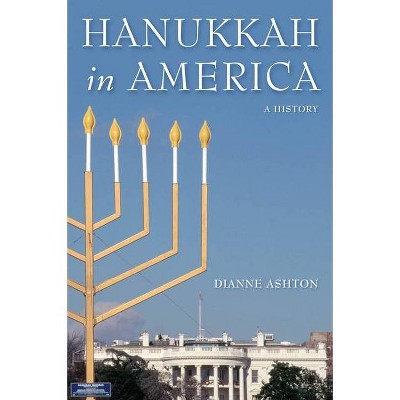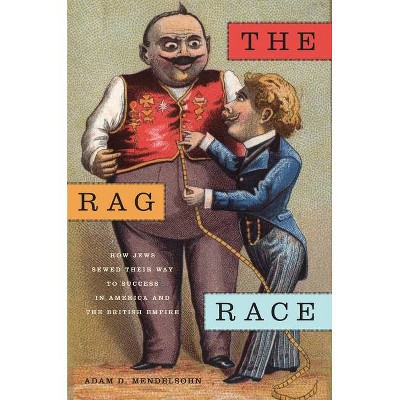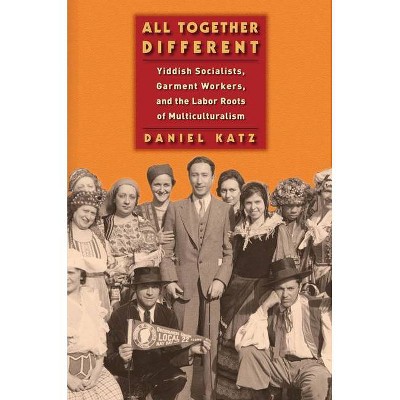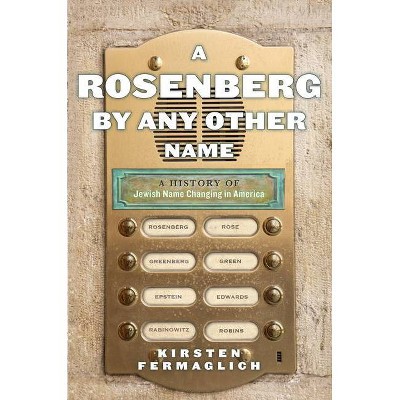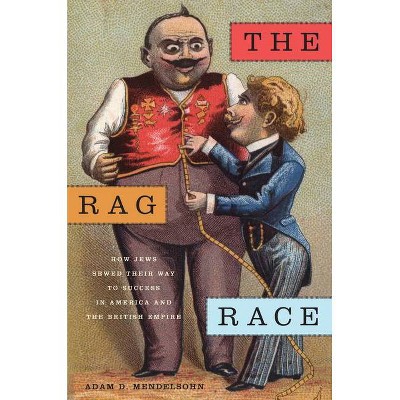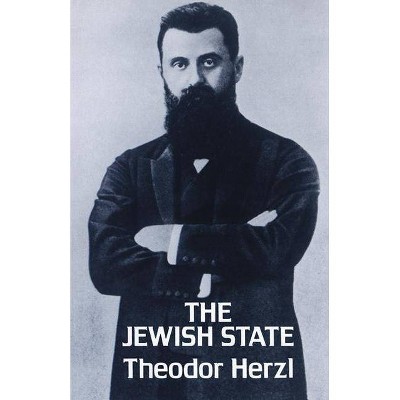Making Judaism Safe for America - (Goldstein-Goren American Jewish History) by Jessica Cooperman (Hardcover)
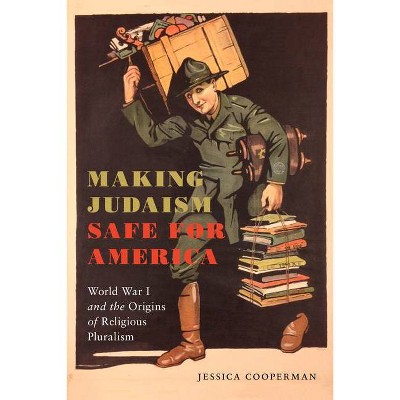
Similar Products
Products of same category from the store
AllProduct info
<p/><br></br><p><b> Book Synopsis </b></p></br></br><p><b><i>Honorable Mention, 2019 Saul Viener Book Prize, given by the American Jewish Historical Society</i></b> <p/><b>A compelling story of how Judaism became integrated into mainstream American religion </b> <p/>In 1956, the sociologist Will Herberg described the United States as a "triple-melting pot," a country in which "three religious communities - Protestant, Catholic, Jewish - are America." This description of an American society in which Judaism and Catholicism stood as equal partners to Protestantism begs explanation, as Protestantism had long been the dominant religious force in the U.S. How did Americans come to embrace Protestantism, Catholicism, and Judaism as "the three facets of American religion?"Historians have often turned to the experiences of World War II in order to explain this transformation. However, World War I's impact on changing conceptions of American religion is too often overlooked. <p/>This book argues that World War I programs designed to protect the moral welfare of American servicemen brought new ideas about religious pluralism into structures of the military. Jessica Cooperman shines a light on how Jewish organizations were able to convince both military and civilian leaders that Jewish organizations, alongside Christian ones, played a necessary role in the moral and spiritual welfare of America's fighting forces. This alone was significant, because acceptance within the military was useful in modeling acceptance in the larger society. <p/>The leaders of the newly formed Jewish Welfare Board, which became the military's exclusive Jewish partner in the effort to maintain moral welfare among soldiers, used the opportunities created by war to negotiate a new place for Judaism in American society. Using the previously unexplored archival collections of the JWB, as well as soldiers' letters, memoirs and War Department correspondence, Jessica Cooperman shows that the Board was able to exert strong control over expressions of Judaism within the military. By introducing young soldiers to what it saw as appropriately Americanized forms of Judaism and Jewish identity, the JWB hoped to prepare a generation of American Jewish men to assume positions of Jewish leadership while fitting comfortably into American society. <p/>This volume shows how, at this crucial turning point in world history, the JWB managed to use the policies and power of the U.S. government to advance its own agenda: to shape the future of American Judaism and to assert its place as a truly American religion.</p><p/><br></br><p><b> Review Quotes </b></p></br></br><br>Illuminating. Insightful. Challenging. We all know World War II forced the U.S. to rely on an ideology of pluralism and harmony. Jessica Coopermans timely and nuanced study traces the origin of this inclusive language to World War I, as religious minorities, and most especially American Jews, fought for first-class status and a seat at the table. She also shows the costs of that inclusion and the shaping of a certain kind of American Jewry. Her study of the structural changes hoisted upon the U.S. military by American Jews is a must-read for people interested in American pluralism, American religious life, and the costs and benefits of fitting in to the American ideal.--Kevin M. Schultz, author, Tri-Faith America<br><br>In this perceptive book, Jessica Cooperman highlights the important role of the National Jewish Welfare Board, and shows how ideas about pluralism shaped both Judaism and American religion generally during the tumultuous World War I era. A valuable contribution!--Jonathan D. Sarna, University Professor and Joseph H. & Belle R. Braun Professor of American Jewish History, Brandeis University and author of American Judaism: A History<br><br>The idea of a 'tri-faith' America did not become part of the American civic consensus until after World War II, when it was popularized by the Jewish thinker Will Herberg, but, as Cooperman shows, it began much earlier."-- "The Jewish Review of Books"<br>
Price History
Price Archive shows prices from various stores, lets you see history and find the cheapest. There is no actual sale on the website. For all support, inquiry and suggestion messages communication@pricearchive.us
